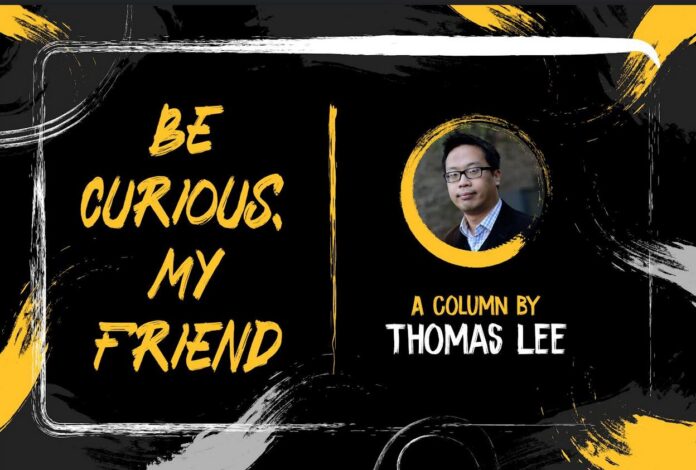by Thomas Lee
Since Donald Trump’s election as President, I’ve seen a quote from Nobel Prize Laureate Elie Wiesel circulate on the Internet, the same quote people posted on social media when Trump won in 2016.
“Always take sides. Neutrality helps the oppressor, never the victim. Silence encourages the tormentor, never the tormented.”
I thought of this quote when I read a post on Facebook from a white woman this past weekend. It went something like this:
“Don’t let political disagreements ruin relationships. We can always disagree, but we can still respect one another.”
The main difference between the two quotes is the stakes involved. Wiesel, who escaped the Holocaust, was talking about state-sanctioned oppression and torment. The woman seemed to be referring to awkward family dinners with that crazy uncle who watches Fox News.
That’s the problem with the relationship between many white people, even those who consider themselves allies, and people of color. The former can’t or won’t recognize the stakes for people of color who feel existentially threatened living in a country historically dominated by white supremacy.
And these groups have good reason to feel threatened.
People forget that the United States is still a very young country. We’re only 80 years removed from the mass incarceration of Japanese Americans, 160 years from people owning African Americans, and less than 200 years from the ethnic cleansing of 60,000 Native Americans (Trail of Tears).
Such collective trauma at the hands of the state is kind of hard to recover from, especially in such a compressed period. You might as well tell Wiesel to get over the Holocaust.
Since white people haven’t experienced this trauma and many don’t even recognize it, they tend to live in a world where people can respectfully disagree with each other, all opinions are valid, race and ethnicity are irrelevant, and all conflicts can be resolved through dialogue.
That all sounds good on paper. Unfortunately, we live in what I like to call the real world.
One white friend once asked me with a straight face why black people and cops couldn’t just get together and hash out their differences in the wake of police-related shootings of unarmed black men.
“Well, for starters, there is a bit of a power imbalance,” I replied. “One group can legally kill the other without any consequences.”
It’s this kind of pollyannish bubble of nativity that prevents many white people from understanding what terms like “white privilege,” “Black Lives Matter,” and “Diversity, Equity, Inclusion” actually mean.
If white people really want to support people of color, they would recognize that the stakes are higher for minority communities to live in a country with such a troubled history and that just re-elected a white supremacist as President. Where many white people might see honest political disagreements, people of color see existential threats to their lives and freedom.
After Trump won in November, a white friend of mine asked me why I personally felt so threatened by him. I explained to her that his talk of ending birthright citizenship, plans to round up immigrants in camps, and bellicose language toward China reminded me of the Japanese American concentration camps during World War II.
“Oh,” she said. “Thank you for telling me this. I understand now. I would’ve never known that on my own.”
So, I would say to the woman on Facebook: Political disagreements can and should end relationships, especially when one’s political beliefs threaten my life and freedom.
Not all ideas and beliefs deserve respect or tolerance. Because we live in the real world.
AsAmNews is published by the non-profit, Asian American Media Inc.
We’re now on BlueSky. You can now keep up with the latest AAPI news there and on Instagram, TikTok, Facebook, YouTube and X.
We are supported by generous donations from our readers and by such charitable foundations as the Robert Wood Johnson Foundation.
You can make your tax-deductible donations here via credit card, debit card, Apple Pay, Google Pay, PayPal and Venmo. Stock donations and donations via DAFs are also welcomed.



As usual, excellent and timely commentary. I add that to me, ending “DEI”, means ending Democracy, Equality and Integration.
Short and Sweet: Very well said.